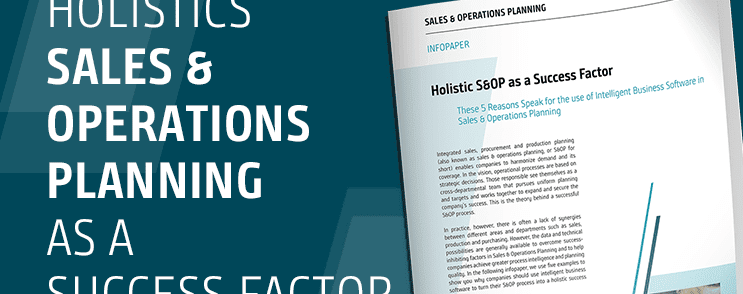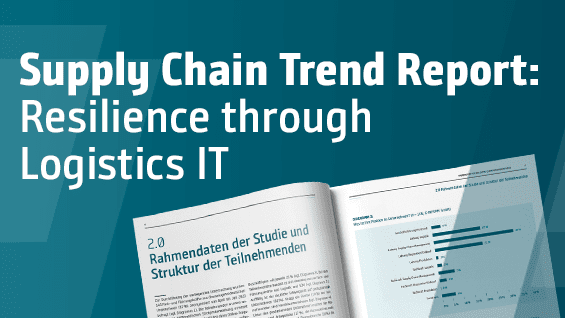In the past, cooperation with one single supplier had become a very comfy habit for many companies. A trustful, well-established relation in combination with a constant purchase volume paved the way for advantageous prices, ordering routines with little effort, a good communication due to long-term acquaintance and concomitantly, an allegedly lower risk for misorderings. The buyers' business goals, i.e. minimized stocks, reduced (storage) costs and economic efficiency, thus seemed to be attained.
But what if the supplier is suddenly gone?
The past years have shown in many ways that a single-source procurement strategy can have fatal consequences for a company. With previously unimaginable events becoming reality, there are immediate supply bottlenecks, production halts and chaos, resulting in profit losses up to insolvency. So far, the focus of corporate risk management has been to rely on the trusted suppliers, but now, another new, proactive and sustainable procurement strategy is inevitably gaining in importance: Multisourcing.
Reduce dependency and gain security with Multisourcing
Blocked transport routes, closed production sites, lack of container availability, and trade dispute are just some of the keywords that underline the necessity for companies to reduce their dependence on individual suppliers and to rethink their procurement in a multidimensional manner. That means that the procurement focus must not be purely on potential savings, but also on aspects that pay off on the resilience of supply chains in the long run. This can be successfully realized in cooperation with several suppliers (Multisourcing). The challenges in this are on the one hand an increasingly complex organization, and on the other hand, to keep a spirit of partnership and trust even with a growing number of suppliers.
Multisourcing – a mammoth undertaking?
Especially against the background of the dominating lack of skilled workers, the inclusion and management of several suppliers admittedly seems to be a mammoth undertaking. It comprises different contract terms, thousands of items and their respective order quantities, varying replenishment lead times, regional and national closing times, order calendars, lead time slices, minimum lot sizes, scaled prices, special rates, price fluctuations, etc. It is worthwhile, though, to face this task, since Multisourcing ultimately aims for an agile, resilient supply chain that can quickly adapt to changing conditions. Mathematics help master such complex networks.
Mathematics as a tool for the application of Multisourcing strategies
Software solutions as for instance the intelligent ADD*ONE Planning Software, exploit the potential of mathematics. They can considerably relieve planners in their daily work and significantly optimize the cooperation with multiple suppliers. Assisted by mathematical forecasting and optimization algorithms they allow for an improved estimation of future developments and provide strategic recommendations for action at an early stage. Procurement strategies with a planning horizon of 12 to 24 months that are already optimized can be shared with the suppliers, so they in turn can prepare and plan at an early stage, which is an important aspect for a trustful collaboration. If a supplier does not confirm a scheduled date, the system will point that out and suggest an alternative supplier, if desired.
Digitally supported supplier selection
Apart from the best price, the application of Artificial Intelligence for supplier selection allows for the consideration of additional factors such as information on the supplier's reliability, for instance. The applied machine-learning algorithms, the consideration of external influencing factors and the suppliers' behavior in the past allow for conclusions about their future delivery performance. That way, the planner can quickly capture which are the options in case of a delivery delay, and thus decide whether a delayed delivery is still tolerable or should be canceled, or whether a replacement purchase at a more expensive yet faster supplier is worthwhile.
Also, data on traffic disruptions on the transport routes can smoothly be inserted and used in the system by means of tracking software. Thus, the software does not only provide an overview of stockouts and excessive stocks, but it also indicates stock in transit and imminent shortages. Moreover, the system can also implement calendar details in the planning, such as regional closing times (e.g., Chinese New Year, or extended summer vacations in Spain, France and Italy). Even procurement within the company becomes a possible scenario, as the software can connect the different sites and evaluate the available stock in the other plants.
Multisourcing: a win-win situation for planning and sustainability
In addition, environmental protection factors can be included in the supplier selection. Information on transport routes and transport devices (container vessels vs. freight traffic) can provide valuable hints to possible carbon dioxide emissions, and thus contribute to an environmental-friendly realignment of corporate procurement strategies.
The reasons for a Multisourcing strategy reach much farther than that, though. The fact that German companies in particular are part of global supply chains also forces an extended responsibility on them. From the fact that companies often get their raw material, semi-finished products and finished goods to a great extent from less expensive foreign countries emerges growing responsibility for those that are first in line in every supply chain – that is, the people working in these countries. This responsibility is regulated since the Supply Chain Due Diligence Act came into force in January 2023. It calls on companies to ensure that human rights are respected in their supply chains, and it obliges them to control labor standards as well as social standards and environmental standards. Assisted by intelligent software solutions, the collaboration with suppliers which do not meet these criteria can be terminated quickly and without causing damage to your company.
Multisourcing: a joint task for enduring success
Conclusively, Multisourcing means to reshape the cooperation with suppliers. Within the companies it is therefore important to refocus from mere monetary goals to goals that sustainably strengthen the resilience of supply chains. Correspondingly, the companies should create incentive systems rewarding the extent to which the buyers' procurement strategies contribute to an increase in resilience. Intelligent software solutions such as ADD*ONE are the means of choice to provide transparency and enable the easy implementation of Multisourcing. In doing so, knowledge is made accessible beyond corporate boundaries, is pooled efficiently, is evaluated in an automated manner and can be used in partnership with the suppliers for the planning of processes in the supply chain management. In this way, strategic goals can be achieved in the network even in volatile times: resilience, satisfied customers, improved sustainability and, as a result, an efficient and successful business.
Which role does multisourcing play in your supply chain planning?




























